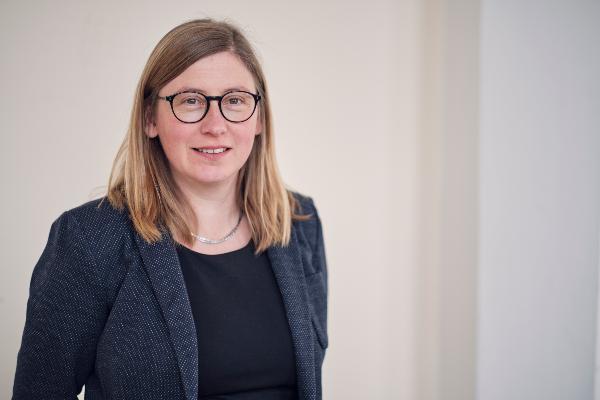When do differences between people result in inequalities? What has this got to do with religion? And how can we foster understanding of differences in school classrooms? These are the questions that exercise Professor Ulrike Witten in her investigations into inclusion in religious instruction. Having obtained her habilitation degree on this subject in 2020, she is continuing to pursue it at LMU.

Professor Ulrike Witten
© LC Productions
“It depends on certain contexts whether a difference acts as a disadvantage or not,” she says, adding that religion is an inequality-producing factor. For example, people associate problems with a certain religious creed – the phenomenon of so-called Muslimization being a case in point. “Although it’s true, say, that Muslim children and teenagers are overrepresented at special-needs schools,” she observes, people are quick to attribute this to religion and tend to ignore whether they have other disadvantages that intersectionally overlap – such as migration backgrounds and experiences or disadvantaged social backgrounds.
It’s important to show that there is not the Muslims, the Protestants, or the Catholics – these groups are not uniform blocs – and to work out what role non-religious worldviews play.Professor Ulrike Witten
Ulrike Witten researches how inclusion applies to religious education and what research questions it throws up. She also investigates the religious socialization of children in collaborations with researchers from universities in Landau, Bamberg, and Linz. The research involves surveying Christian, Muslim, Jewish, and non-religious children about their environment and how they come into contact with religion. Evaluation of the results in currently underway. “It’s important to show that there is not the Muslims, the Protestants, or the Catholics – these groups are not uniform blocs – and to work out what role non-religious worldviews play.”
Ulrike Witten studied theology, history, and educational science in her home town of Leipzig, where she also completed her doctorate. Her dissertation on diaconal education won a prize awarded by the Evangelical Church in Germany (EKD).
After a stint as a trainee teacher at an academic high school in Halle/Saale, she took up an offer to become a research fellow at the local university. She later completed her habilitation degree in Halle, also receiving a prize for this thesis.
Next, Witten took up a professorship at Bielefeld University, where she remained for two years before coming to LMU. “I like it that all Christian religions are represented at LMU, including Orthodoxy.” She hopes this will provide ample opportunities for interdenominational collaboration.
“The subject has to perennially justify its existence”
She has brought a fresh research topic with her to LMU. “We want to investigate which ‘soft’ factors influence religious instruction,” she explains. “One example is Bavaria, where students are allocated to classes based on their religious affiliation. In other federal states, students have the option of choosing a subject within a subject group independently of their own religious affiliation.” Religious instruction, she says, is a fragile subject which is forever being called into question. “The subject has to perennially justify its existence.” In her project, she wants to determine what kinds of proofs of worth religion classes are expected to furnish. “We plan to investigate how teachers act, defend the value of their subject, and offer extra benefits to the school as a whole.” To this end, her team is conducting a qualitative study based on interviews with teaching staff. Among other things, this will involve evaluating field notes from teachers. The goal is to figure out how religion can deliver added value to the whole school.
Ulrike Witten wants not only to exchange ideas with other researchers at LMU, but also to keep contact with those working at the coalface of religious education. “Religious instruction is changing, so it’s important to maintain close links.”









